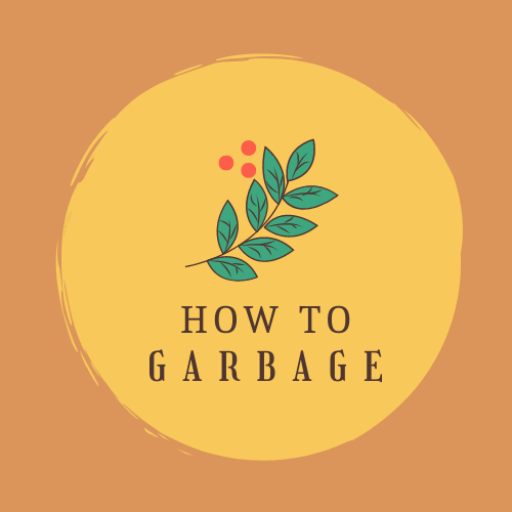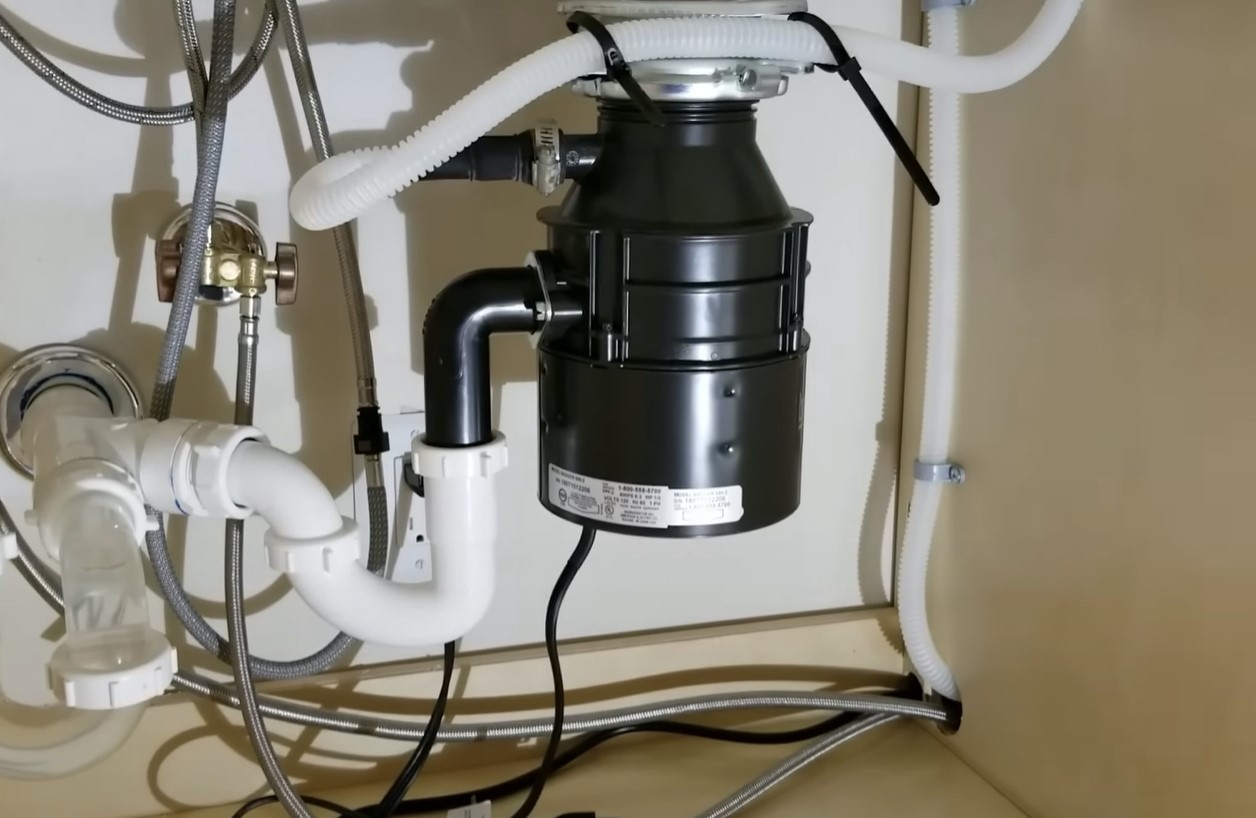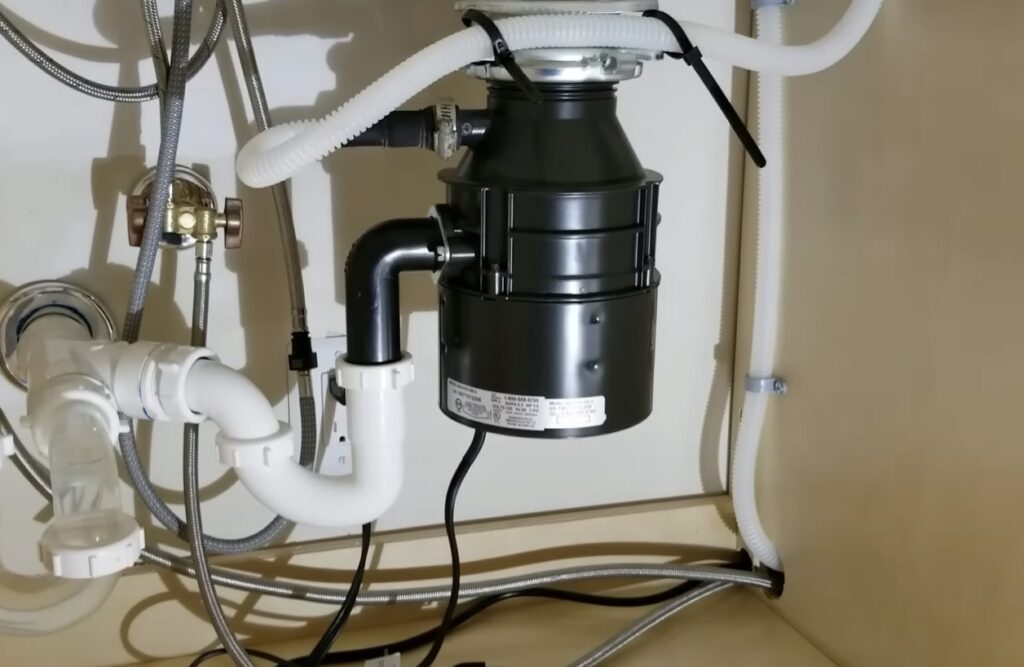
Food disposal is an essential part of modern life. It’s a major concern for many households, businesses, and communities. Waste disposal systems are designed to safely and efficiently remove unwanted food and other waste materials from the environment. Ultimately, a food disposal system is only as effective as its users. If you plan on installing a dishwasher or garbage disposal soon, this may be a point of concern. This article will answer these questions and clear up any confusion surrounding the topic of dishwasher with garbage disposal, so stick around to learn more!
Do Dishwashers Have Built-In Garbage Disposals?
For those looking to upgrade their kitchen appliances, the answer is a resounding yes! Dishwashers now come with built-in garbage disposals, making them far more efficient and versatile than ever before. But how exactly do dishwashers work with garbage disposals and why is this a great option for your kitchen?
Troubleshooting a Broken Garbage Disposal
Without the proper knowledge, it can be difficult to troubleshoot and fix any problems that arise. Even if you are lucky enough to find the issue, it can still be quite a hassle to find the correct parts and tools to repair the issue. That being said, having the correct parts and tools to fix your appliances is essential, and a good manufacturer will provide everything you need. One of the best manufacturers of both plumbing and appliance parts is Whirlpool.
Dishwashers & Filtration Systems
Dishwashers with built-in garbage disposals use a powerful filtration system to break down food particles and debris before they reach the drain. This ensures that food scraps and particles don’t clog up the dishwasher’s wash cycle and are instead intercepted by the filtration system. This prevents them from entering the drain and clogging it up, making them far more efficient and reducing the need for plumbing overhauls or repairs.
Garbage disposals are an excellent way to reduce food scraps and prevent them from clogging up your sink drains. However, garbage disposals can be harder to maintain than dishwashers. They require more frequent cleaning and can be prone to clogs. Additionally, they can also add extra noise to your kitchen.
Dishwashers can take some of the work out of washing dishes. They use jets of hot water to rinse and disinfect dishes, and some models also offer pre-rinse and sanitizing cycles. Plus, they are usually quieter than garbage disposals, and many dishwashers also feature a built-in food waste disposer.
The downside to dishwashers is that they often require more water pressure and higher temperatures than garbage disposals to effectively clean dishes. However, if you have the budget for a high-quality, American-made dishwasher such as Kitchenaid, you can get the benefit of both a food scrap disposer and clean dishes with every cycle.
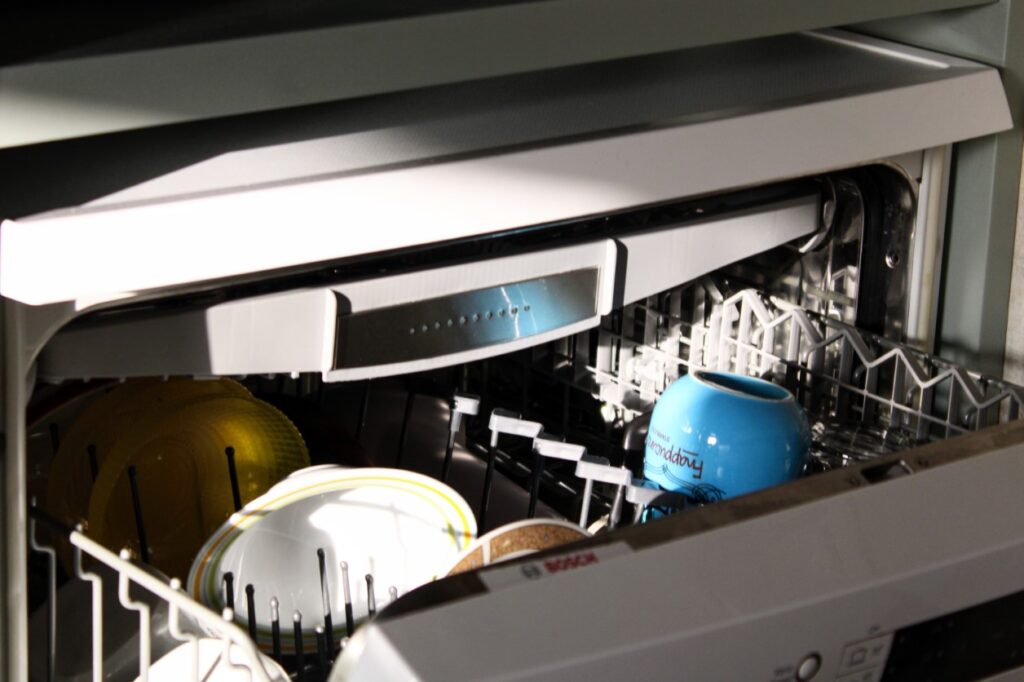
Which Option of dishwasher with garbage disposal Is Best?
When it comes to choosing the best dishwasher for your home, there are several options to consider. There are many types of dishwashers: dishwashers with food, dishwashers with the garbage disposal, and American-made dishwashers. The best dishwashers are the new dishwasher. They also feature backflow. This simplifies the process of dishwashing. Newer dishwashers come with filters built-in, meaning that you won’t need to buy a separate garbage disposal. However, older models may lack this feature, so it’s important to check before you buy. Additionally, some dishwashers are made by American-made companies, such as GE, while others are European dishwashers.
- The first factor to consider is whether you need a pre-rinse or a breaker dishwasher. Pre-rinse dishwashers are designed to quickly rinse dishes before they are loaded into the machine, while breaker dishwashers use a rotating arm to break up food particles before they are washed.
- Another factor to consider is whether or not you need a backflow system. This system helps to keep water from flowing back into the dishwasher from the sink. This is especially important when dealing with high temperatures produced by the dishwasher.
- Finally, you should also take into account the type of racks used to connect the dishwasher to the sink. Most manufacturers believe that their counterparts offer a better connection than those of other manufacturers.
Tips
- There are many types of dishwashers: dishwashers with food, dishwashers with the garbage disposal, American-made dishwashers.
- If your dishwasher isn’t connected to the garbage disposal, it’s important to ensure that you don’t overload it with food particles or food waste.
- To prevent clogging, make sure to scrape off any food residue before running it, and run the dishwasher every ten days or so to ensure that no food scraps or particles are left behind.
- Rack systems are another plumbing solution that can help reduce or eliminate a clog. Finally, plumbing also features a counterpart in the electrical world: wiring. In some cases, it could be a simple fix that you can do yourself, but in other situations, it could lead to a much more serious problem.
- One of the most common plumbing problems is a clogged tube. This is when there is a blockage that prevents the water from flowing through the pipe. This could be caused by a buildup of debris, a foreign object, or a break in the tube itself. To fix the issue, you will need to identify the cause and then either unclog the pipe or use a bypass to get the water around the blockage.
- Before messing with any of the following components, cut power to the garbage disposal and dishwasher.
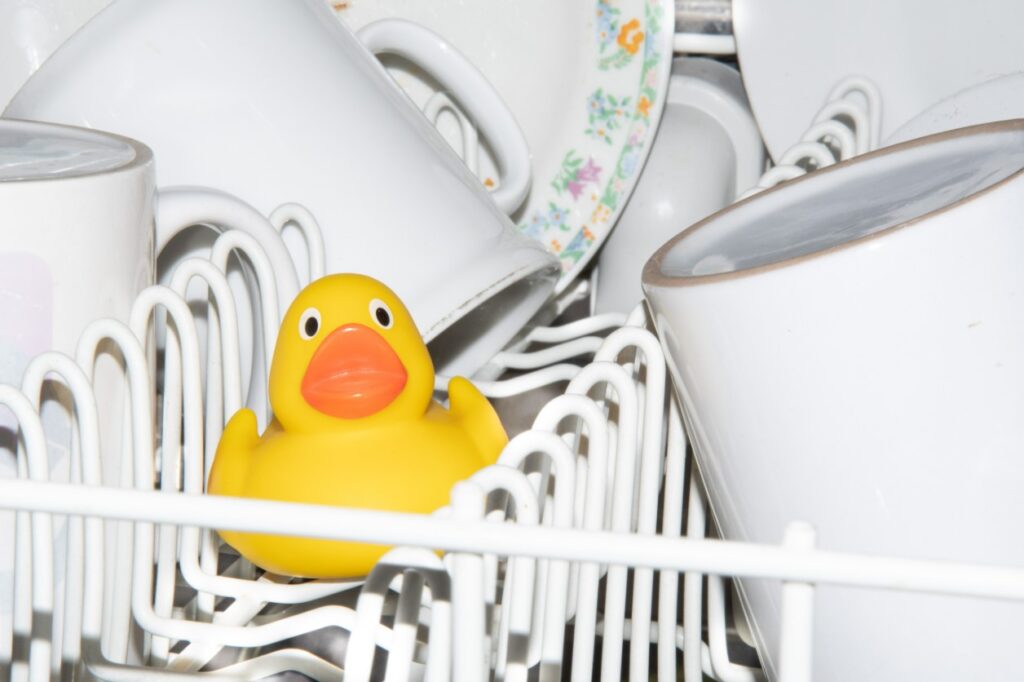
Warnings
- When it comes to installing a dishwasher, if the dishwasher isn’t connected to the garbage disposal, it’s important to ensure that you don’t overload it with food waste and particles.
- Additionally, it’s important to run the dishwasher every ten days or so to provide that food debris and waste are intercepted by the filtration system.
- If your dishwasher is connected to a septic tank, it’s important to note that the grinding capacity and motor power of the dishwasher may be louder than standard dishwashers.
- When you can, it’s a good idea to repair the garbage disposal. Even if the dishwasher is still working, old food and gunk can begin to catch in the garbage disposal, leading to a foul odor and making it harder to repair later.
- Make sure you avoid placing any large, lumpy food in your dishwasher – always rinse every dish beforehand.
What if the Dishwasher Isn’t Connected to the Garbage Disposal?
If your dishwasher isn’t connected to the garbage disposal, you can still reap the benefits of filtration and disposal. To do this, you’ll need to adjust the side of the garbage disposal that’s closest to the dishwasher’s drain tube. This will allow the dishwasher to filter out food waste and particles before they reach the sink drain.
Do Bosch Dishwashers Have Built-In Garbage Disposals?
Yes, Bosch dishwashers have built-in garbage disposals, allowing them to grind up food waste and debris before they enter the drainage system. However, it’s important to note that not all Bosch dishwashers come with this feature, so it’s important to check before you buy.
What Dishwasher Has Hard Food Disposer?
Samsung is one of the most popular manufacturers when it comes to dishwashers with hard food disposers. Their StormWash dishwashers are quieter than their counterparts and come in one of two varieties: 13-place settings and more efficient 16-place settings. Both models also feature adjustable racks and a stainless steel interior.
Conclusion
Dishwashers with built-in garbage disposals are a great option for busy kitchens and provide additional convenience as well as improved efficiency. Every dish is help people.
With a wide variety of dishwashers on the market, it’s important to provide that you buy the right model for your needs.
Additionally, it’s important to scrape off food residue, run the dishwasher regularly, and adjust the side of the garbage disposal that’s closest to the dishwasher’s drain tube.
By doing these simple things, you’ll ensure that your dishwasher can break down food waste and garbage before they enter the drainage system and cause clogs.
